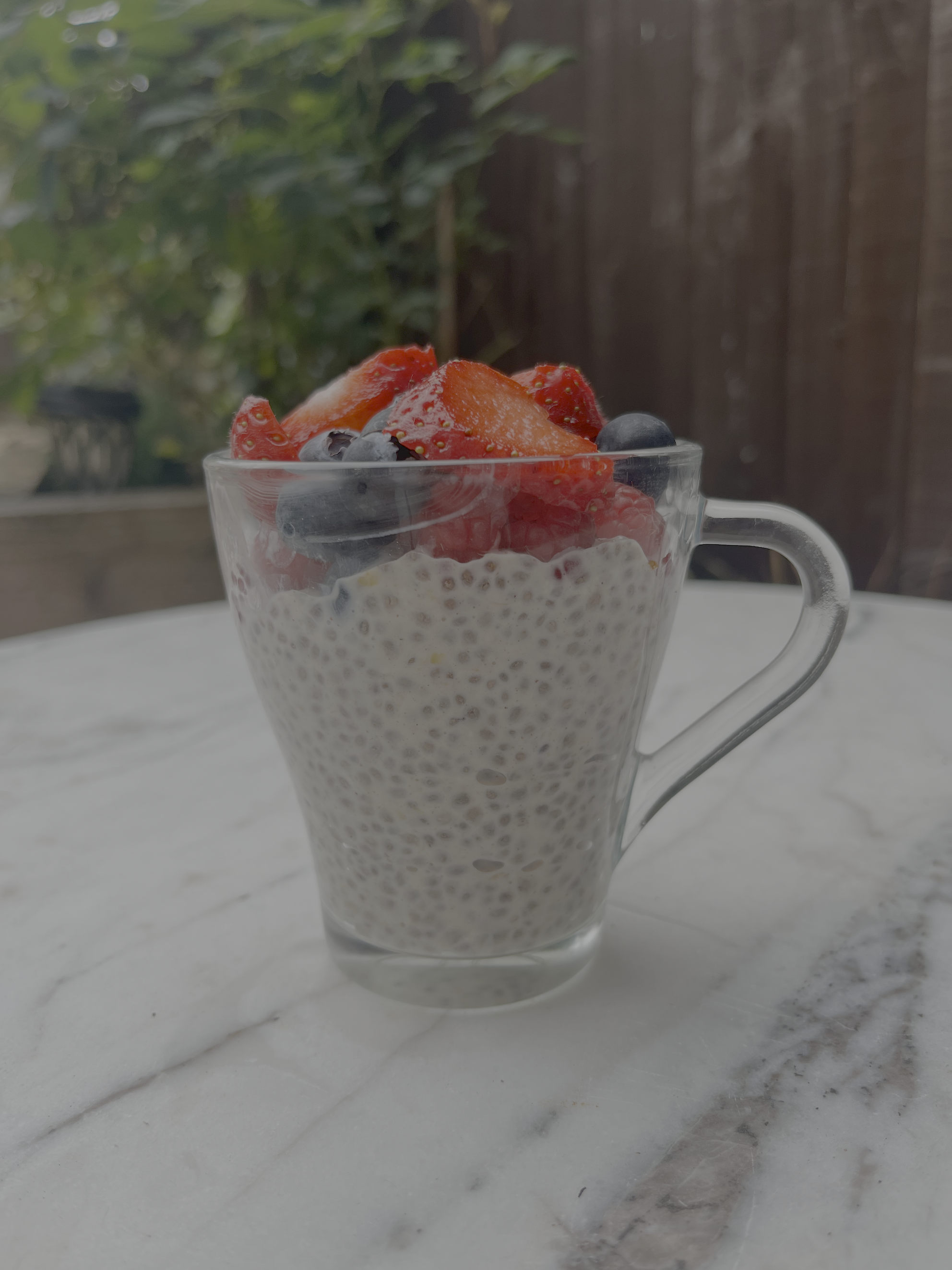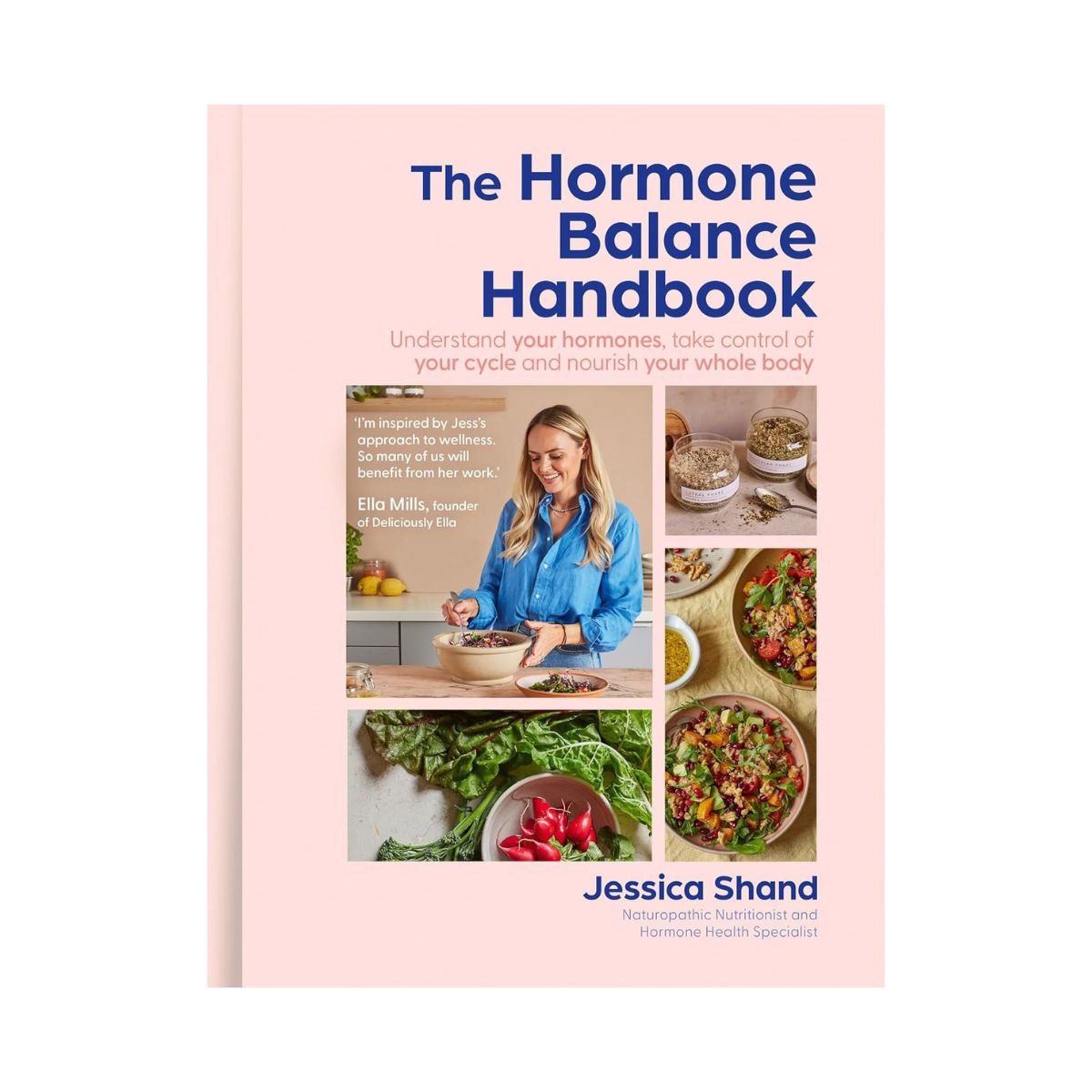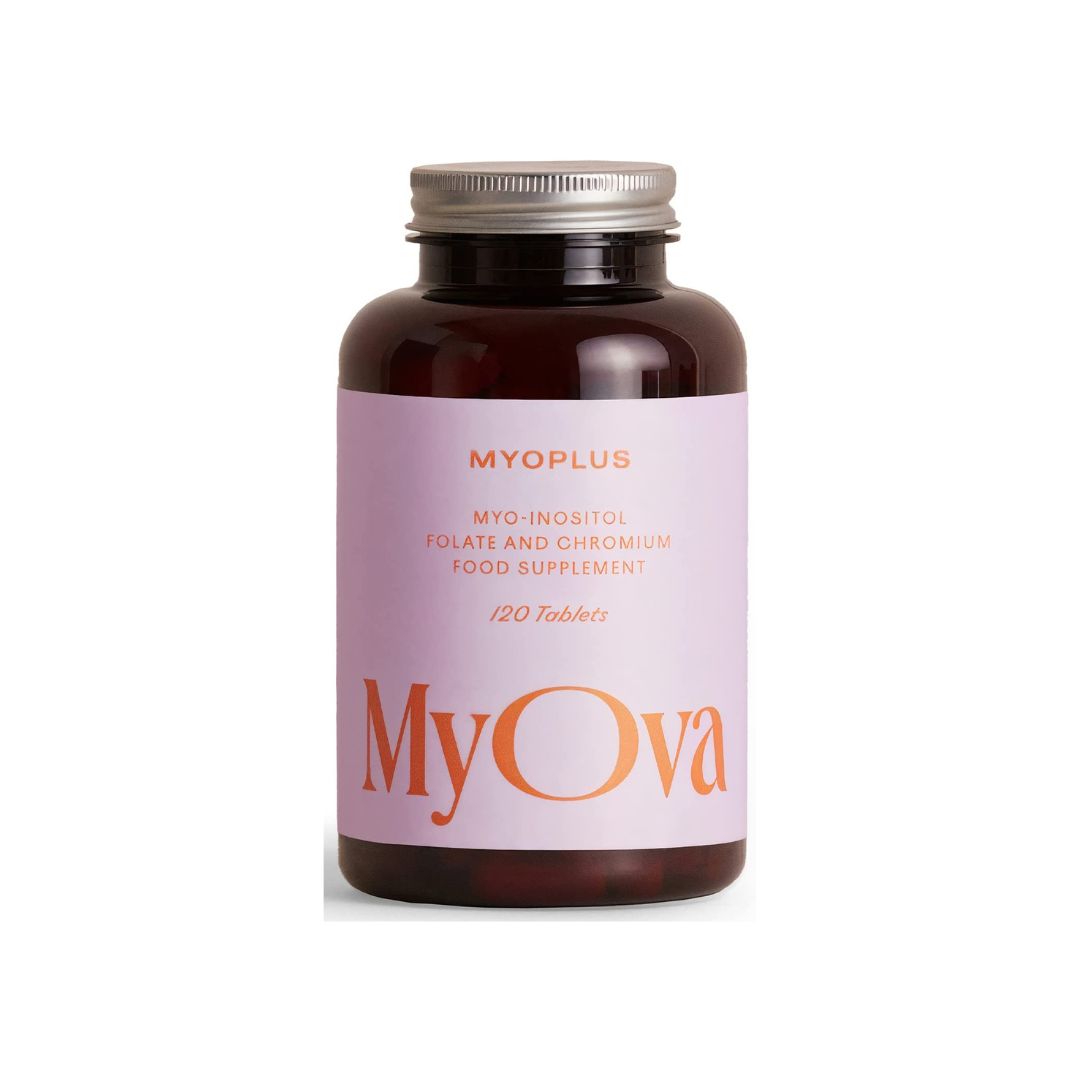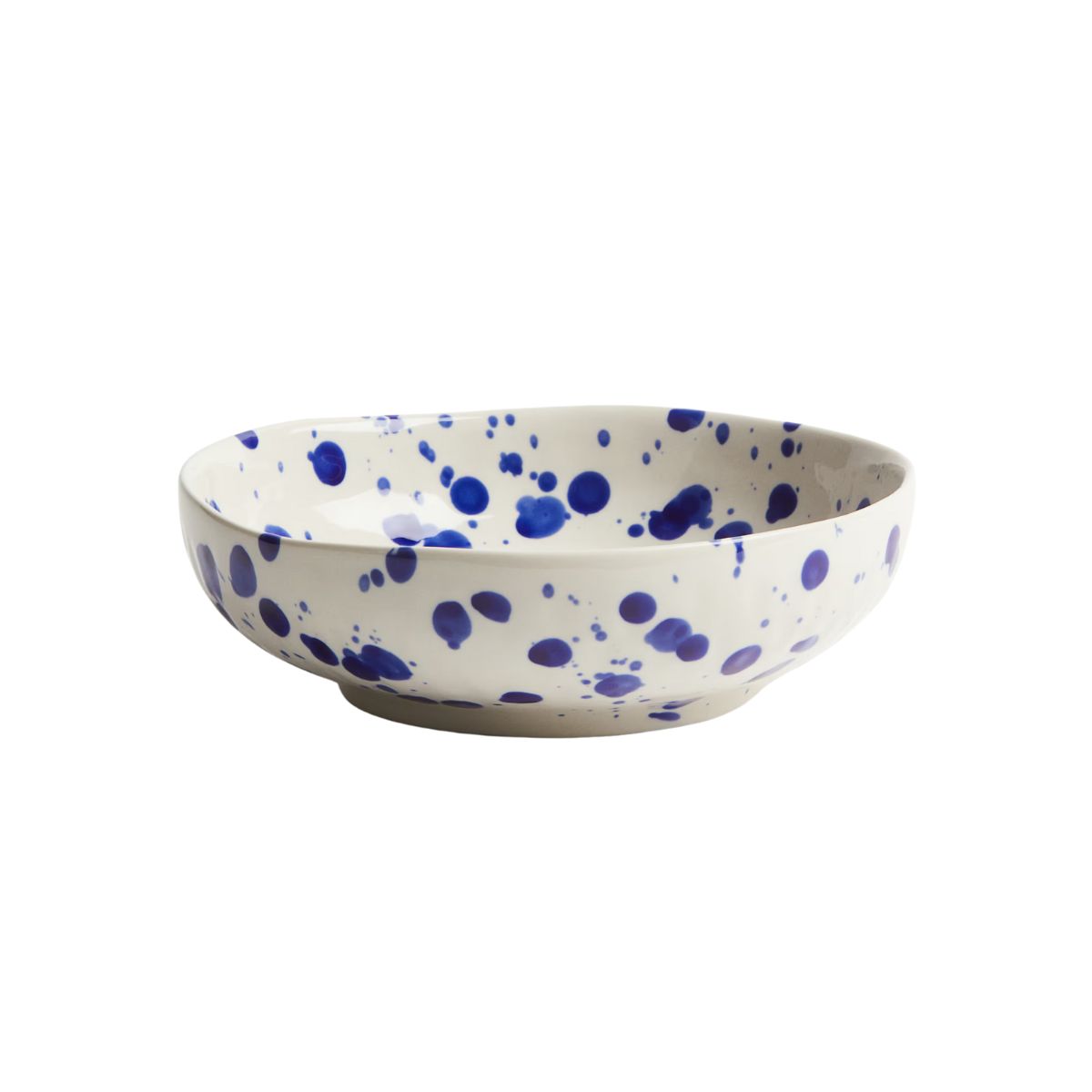Balancing Your Hormones Has Gone Wildly Viral This Year – but Are Some of the Hacks Actually Harmful? Top Nutritionists Debunk
Feeling overwhelmed by all the noise around hormone balancing?


Put together any list of wellness buzzwords from the last few years, and chances are, "hormone balance" is right up there with "gut health", "glucose spikes", and "cycle syncing". Whether it's videos of raw carrot salads promising clear skin, viral seed cycling tutorials, or blood sugar hacks to beat the 3 pm crash, social media would have you think that balancing your hormones is a cure-all solution: unlocking better energy, clearer skin, improved digestion, and regular periods.
In many ways, the hype around hormone balancing is justified, with a growing body of science backing the connection between nutrition, blood sugar and hormonal health. Take this 2022 study, published in The Journal of Food Biochemistry, for example, which found that a diet rich in protein, anti-inflammatory foods and healthy fats positively influenced insulin and inflammation levels in women with PCOS (a common hormonal disorder affecting one in ten women in the UK). Or this research in the International Journal of Food Science and Nutrition, which found that limiting processed foods, prioritising quality sleep and engaging in regular physical activity can promote optimal hormonal function.
As someone who struggles with irregular cycles, I’ve become a fan of the simple “hormone-balancing hacks” shared by bioscientist Jessie Inchauspé (better known as the Glucose Goddess), whose blood sugar-stabilising tips have amassed 5.6M followers online. Working in an office four days a week, I knew I’d never commit to anything too complex, but just switching my sweet breakfast for something savoury? I can get on board. I’ve found myself staying fuller for longer, feeling more energised, and the dreaded afternoon slump is now a rare occurrence.
But in the last year, it feels as though the conversation around hormone balancing has shifted somewhat online. What began with nutritionists and dietitians sharing simple lifestyle and diet tweaks has turned into a wave of “what I eat in a day for hormone balance” videos, which at times look suspiciously restrictive, expensive, and anxiety-inducing.
For Hannah Alderson, Hormone Nutritionist and author of Everything I Know About Hormones, the concern is the lack of nuance within these videos. “The idea that what works for one individual will be right for another can be very misleading,” she explains. “Whilst there are common threads within hormone health, we are all individuals living unique lives, and our hormonal health should be approached with this in mind.”
Alderson reminds us that building a hormone-healthy environment shouldn’t be about fear or restriction. “There’s a difference between building a positive hormone environment and being told your body is broken if you don’t eat in a certain way. Our bodies aren’t a software system that needs to be hacked, and your hormones aren’t something to ‘fix’ – they’re something to support.”
So, how do we cut through the noise and get to the heart of what really matters when it comes to your hormones? To separate fact from fiction, we’ve enlisted the help of Alderson, alongside Women's Naturopathic Nutritionist and author of The Hormone Balance Handbook, Jessica Shand, to create your complete hormone-balancing bible.
Celebrity news, beauty, fashion advice, and fascinating features, delivered straight to your inbox!
Intrigued? Keep scrolling. And if eating for your hormones is something you’re keen to try, we’d suggest checking out Senior Health Editor Ally Head's review of Glucose Goddess hacks before heading to our nutritionist-approved guide to the best foods for hormone health. If recipe inspiration is what you’re after, our review of the best anti-inflammatory recipes is a must-read.
Keen to know how to balance your hormones? Top specialist experts share their take
What does it mean to "balance your hormones"?
With so much chatter around hormone health, it’s easy to nod along without fully understanding what’s actually going on beneath the surface. And I’ll be honest, even as a Health Writer who considers herself pretty in tune with her body, I’ve had moments where I’ve stopped and thought, hang on, what is a hormone, exactly?
“Hormones are chemical messengers produced by your endocrine glands - like your thyroid, ovaries, adrenal glands and pancreas,” explains Shand. “They’re responsible for regulating countless essential processes in the body, from metabolism and mood to energy levels, sleep, menstrual cycles, stress responses and reproductive health.”
So when we talk about 'balancing your hormones,' what we’re really getting at is helping those messengers communicate clearly and efficiently. “It’s about achieving an optimal level and interaction between various hormones in your body,” says Shand. “That’s what allows them to function smoothly and support your overall wellbeing.”
What both experts were quick to point out, however, is that it’s not about chasing some perfect number or keeping your hormones static. In fact, Alderson isn’t a fan of the word 'balance' at all. “While the goal is to feel balanced, aiming for ‘balanced hormones’ doesn’t send quite the right message,” she says. “Hormones are meant to fluctuate because they all have different roles and characteristics, that’s what keeps our systems functioning.”
Instead of chasing a fixed target, Alderson encourages us to focus on creating the kind of internal environment where our hormones can naturally do their job without disruption. Shand agrees. “Things like what we eat, how we move, how well we sleep, our stress levels, and even our exposure to environmental toxins all have a direct impact on our hormone levels. Balancing your hormones is not about perfect, static levels but rather about supporting your body in maintaining a healthy, adaptive range that suits your lifestyle and individual biology.”
What are the benefits of eating and moving for your hormones?
Research suggests that around 75% of women have experienced a reproductive health issue in the last year, which makes tuning into our hormonal health not just helpful, but necessary.
“Hormonal imbalances can be the cause of fertility challenges, abnormal menstrual cycles, persistent fatigue, anxiety, unexplained weight changes, poor sleep, skin breakouts and hair loss,” explains Shand.
And that’s just scratching the surface. “Everything from energy, mood, weight, digestion, sleep, your heartbeat, happiness and love is influenced by hormones,” adds Alderson. Put simply? When our hormones are well supported, we feel better.
But what’s actually going on behind the scenes to make us feel better? To help us get a little more granular, we asked Shand to break down the key benefits that come from supporting your hormones through nutrition and movement:
1. More stable energy levels
If you find yourself crashing mid-afternoon or reaching for a pick-me-up around 4 pm, you’re not alone, and your hormones might have something to do with it. “When hormones such as insulin and cortisol are balanced, we see a prevention of energy crashes and reduced cravings,” says Shand. The result? Steadier energy throughout the day, without the rollercoaster.
2. Better mood and mental clarity
Balanced hormones play a key role in regulating brain chemicals like serotonin and dopamine, which support emotional stability and mental sharpness. “Hormonal balance supports neurotransmitter function, reducing anxiety and enhancing focus,” says Shand.
3. Deeper, more restful sleep
Hormones like melatonin and cortisol play a major role in sleep quality. According to Shand, when they’re in sync, “you fall asleep easier, stay asleep longer, and wake up feeling refreshed.”
4. Weight management, if that’s your goal
Let’s be clear: weight loss isn’t the goal for everyone, and no one should ever feel pressure to change their body. But if a shift in body composition is part of your personal health goals, your hormones matter. “Stable insulin levels reduce fat storage, balanced thyroid hormones support metabolism, and lower cortisol helps prevent abdominal weight gain,” Shand explains.
5. Reduced PMS and smoother menstrual cycles
One in five women experiences PMS symptoms severe enough to impact daily life, but that doesn’t make it normal, and it’s not something you should just have to live with. “A hormone-friendly diet and regular movement can result in pain-free menstrual cycles, reducing cramps and PMS symptoms,” says Shand.
6. Greater resilience to stress
Movement is one of the most effective ways to regulate cortisol (your main stress hormone), Shand tells us, “whilst a nutritious diet helps to stabilise blood sugar, keeping your mood steady and helping you handle life’s challenges with greater ease.”
7. Fewer skin breakouts
If your breakouts tend to coincide with your cycle, you’re not imagining it. Shand explains that “hormonal stability, especially when it comes to androgens like testosterone, can help reduce breakouts and keep skin clearer.”
8. Improved fertility and reproductive health
Whether you’re trying to conceive or not, supporting reproductive hormones like oestrogen and progesterone is key. “Proper nutrition and regular movement promote healthy ovulation, which should be the goal of every cycle as it’s a vital sign of overall health,” Shand notes.
Who could benefit from "balancing" their hormones?
According to Alderson, the short answer is: pretty much all of us. “Whether you’re navigating PCOS, fertility, perimenopause or postpartum depletion, dealing with endometriosis, or simply want to feel less foggy and more energised, supporting your hormones is important at every stage of life,” she explains, reminding us that we don’t have to wait for something to feel ‘off’ before starting to pay attention to our hormonal health.
Shand agrees, highlighting that adopting a hormone-supportive lifestyle can be especially beneficial for women experiencing menstrual irregularities. This can include anything from “heavy periods, missed cycles or PMS,” she says. “Women with conditions like polycystic ovary syndrome (PCOS), endometriosis, or fibroids often see improvements in symptom management by supporting hormonal balance. Proper nutrition and lifestyle adjustments help regulate key hormones like estrogen, progesterone, and insulin.”
Hormonal health also becomes crucial when you’re thinking about starting a family. “For those facing fertility challenges, supporting hormones can help enhance monthly ovulation and optimise reproductive health, making conception more likely,” Shand explains. And this isn’t just relevant earlier in life. Women going through menopause can also benefit. “Symptoms like hot flashes, night sweats, and mood swings can often be eased by optimising hormone levels through diet and lifestyle changes,” she adds.
Is a diet and lifestyle tailored to balancing your hormones for everyone?
“While this way of eating and living can support almost everyone, it’s how you approach it that really matters,” explains Alderson, who reminds us that “if it becomes too rigid or fear-based, it can backfire.”
If you’ve ever been caught in the traps of diet culture, this will probably resonate. It’s all too easy for a healthy habit, especially around food, to slip into restriction and obsession. And when it comes to hormone health, that can do far more harm than good. As Shand points out, “Focusing too heavily on optimising health can become a stressor, particularly if someone starts to obsess over every bite. Ironically, this stress disrupts cortisol levels, which is the body’s primary stress hormone.”
It’s also important to remember that a hormone-supportive lifestyle won’t look the same for everyone, especially if you’re managing other medical conditions like diabetes. In these cases, it’s always best to check in with your doctor before making any significant diet or lifestyle changes aimed at balancing hormones.
2 simple hormone balancing recipes to try
1. Jessica Shand's Magnesium-rich Walnut Pesto Spelt Spaghetti

Ashleigh's version of Jessica Shand's Walnut Pesto Spaghetti. Ashleigh tops hers with crushed walnuts & crumbled feta
Serves 2
- 2 servings of spelt spaghetti
- Big handful of spinach
- 400g tin haricot beans, drained
- and rinsed
- 60g basil
- 30g flat-leaf parsley
- 60g walnuts
- 60g Parmesan
- 2 garlic cloves
- 125ml extra-virgin olive oil
- Juice of ½ lemon
- Pinch each of sea salt and freshly
- ground black pepper
- ¼ tsp dried chilli flakes
- To make the pesto, place all the ingredients in a food processor and blitz.
- Cook the spaghetti according to the packet instructions, drain and stir in the spinach, and haricot beans (or sub butter beans for your choice of protein, or prawns or chicken), along with the pesto, while the pasta is still hot.
2. Hannah Alderson's Lemon Chia Seed Pudding

Ashleigh made Alderson's lemon chia seed pudding (and can confirm, it's delicious)
Serves 1
- 60g rolled oats (gluten-free if needed)
- 2 tbsp chia seeds
- 1 tbsp ground flaxseed (optional but great for hormone support)
- Zest of 1 lemon
- Juice of 1⁄2 lemon
- 250ml unsweetened almond milk (or any milk of choice)
- 1 tsp vanilla extract
- 1⁄2 tsp cinnamon (optional for extra blood sugar support)
- 1tsp raw honey (optional, to taste)
- 2 tbsp Greek yoghurt or coconut yoghurt (for creaminess and added protein)
- In a bowl or jar, mix the oats, chia seeds, flaxseed, lemon zest, and cinnamon
- Stir in the lemon juice, almond milk, vanilla extract and sweetener (if using). Mix really well to avoid clumps
- Cover and refrigerate overnight (or at least 4 hours) to allow the chia seeds and oats to soak and thicken
- In the morning, give it a good stir and fold in the yoghurt
- Serve with your favourite toppings, like berries for added texture and hormone-friendly nutrients
MC UK Approved Products To Help Your Hormone Balancing Journey
Do we need to be taking supplements to support hormone health?
Here at Marie Claire UK, we always champion a food-first approach when it comes to nutrition. But between busy schedules and everyday life, it’s not always easy to get everything we need from diet alone. So, can supplements play a helpful role in supporting our hormones? And if so, which ones should we really be considering?
“Supplements should be just that, supplementary to a healthy, well-balanced diet rich in a variety of vitamins and minerals from real foods,” explains nutritionist Jessica Shand, who likens supplements to an insurance policy, helping to fill in any nutritional gaps that food alone might miss.
Hormone nutritionist, Hannah Alderson, agrees that supplements can be valuable, especially in cases where there’s nutrient depletion. She recommends working with a healthcare professional who can provide blood testing and personalised advice. That said, here are some core supplements she often suggests for supporting hormone health.
Magnesium: Supports restful sleep, blood sugar regulation, PMS relief, and the body’s stress response.
Omega-3 fatty acids: Offer powerful anti-inflammatory benefits.
Vitamin D: Especially important in the UK (with our distinct shortage of sunlight), and plays a key role in reproductive health.
B-complex vitamins: Crucial for energy production, mood balance, and overall hormone function.
It goes without saying that supplements aren’t a magic fix, but when used thoughtfully and alongside a nourishing lifestyle, they can be a helpful part of your hormone-support toolkit.

A former heptathlete, Ashleigh is a freelance journalist, specialising in women’s health, wellbeing and lifestyle, with words in Stylist, Cosmopolitan, Glamour and Marie Claire. She’s also the Co-Founder of Sunnie Runners, an inclusive London based run club.


